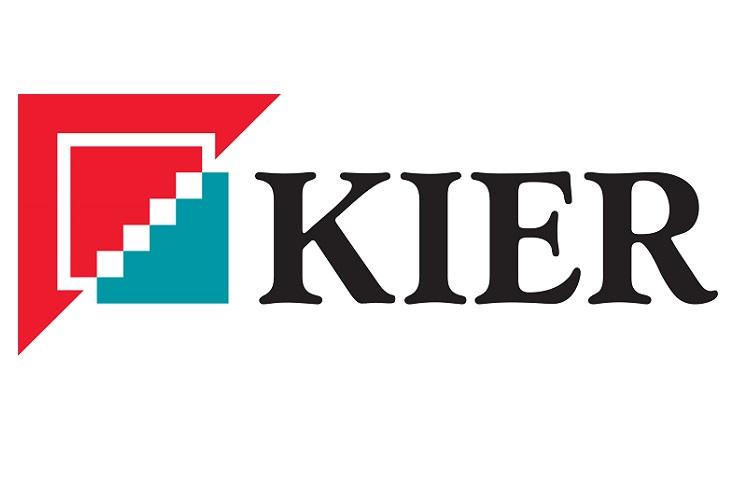Insufficient careers advice puts £90bn GDP at risk

Against a backdrop of declining GCSE results, a new report shows that parents have significant concerns about the quality of careers advice on offer to secondary school pupils.
With 74% of those surveyed feeling careers advice is too focused on academic pathways, and 68% of parents believing that children do not receive enough advice, the report commissioned by FTSE 250 construction and services giant Kier, points to a need for business and government to do more to improve out of date advice.
As the construction/built environment sector battles a fundamental image problem, with pupils and parents not appreciating the breadth of career opportunities on offer in the sector – as well as the industry needing to take on 400,000 new recruits per annum to keep pace with the UK’s growing housing and infrastructure demand – this is about averting a £90bn UK GDP crisis.
As part of the report, a study of 2,000 secondary school teachers, parents and careers advisors was undertaken to assess perceptions of careers advice and career options for school leavers, and specifically to gauge their understanding of construction and the built environment.
The study identified 90% of teachers across the UK are unaware of the scale of the recruitment shortfall in the construction sector, with 41% not realising there is an issue at all.
It also found that 54% of teachers and parents believe there is a lack of career progression in construction/the built environment, and associate the industry with being muddy, manual, male dominated and low paid thanks to outdated perceptions. This is despite the fact that the industry provides a wealth of opportunity across all skillsets.
In part, lack of knowledge is being compounded by a lack of detailed careers advice. The report found that over half of pupils (65%) aged 11-13 get no official advice and only a quarter of 13-15 year olds (27%) got ‘one hour, once’ of careers advice.
The report also found that 57% of parents say rising tuition fees put them off encouraging university as an option for their children, yet 81% of parents were unaware that major FTSE companies can pay the cost of a degree course and offer a guaranteed entry point into work upon completion of studies.
Given that the public sector faces continued budgetary pressures, schools and councils cannot provide timely, comprehensive and persuasive careers advice without support. With the backing of the Institute of Directors (IoD) and the Careers & Enterprise Company, Kier is pledging 1% of its workforce as Career Ambassadors to work with schools and colleges over the next 12months to engage with at least 10,000 school pupils, to inform and inspire the next generation.
Haydn Mursell, Chief Executive of Kier, said: “With an ageing workforce, uncertainty around Brexit and an ambitious pipeline of construction, housing and wider infrastructure projects, which equates to £90bn of UK GDP delivery and creates a demand for circa 400,000 new recruits per annum, it is imperative that we attract new talent into our industry.
“We have invested in comprehensive resource to train and develop new talent, we offer a vast array of roles, great scope and support for diversity and career progression, and we offer the chance to leave a lasting legacy and make a real contribution to local communities, as well as UK GDP. But we also have an image crisis, based on out of date perceptions and advice. We cannot leave this to schools, councils or the government alone to resolve. Business is best placed to explain itself, its employment offering and its skills and training needs.
“For this reason we are pledging a minimum of 1% of our workforce as Career Ambassadors to work with schools and colleges across the UK, to engage with at least 10,000 pupils over the next 12 months.
“If every company in the FTSE 250 and FTSE 100 followed the 1% pledge as part of their commitment to employment and skills, we could create a powerful network of real world advisors, to inform and inspire the next generation.”
Kier would welcome the Government, using its upcoming Careers Strategy, to take further steps to improve careers advice and increase opportunities for collaboration between the public and private sector, following the success of the Careers & Enterprise Company, which brokers this kind of collaboration.
At Kier alone, there are 2,000 different job roles across local, regional and national projects, and many different career entry and progression points from work experience, internships and apprenticeships to under graduate and graduate programmes. As the new Kier careers advice website www.shapingyourworld.co.uk also shows there are a wide range of opportunities on offer in the industry, being tackled by a diverse workforce.
Specific policy asks include:
- Support the role of the Careers & Enterprise Company to ensure young people have access to four or more encounters with the workplace in all schools and colleges across England.
- Mandate that every school gives children a minimum of three one hour careers advice sessions – the first session with a school advisor, follow up sessions with ambassadors from relevant industries.
- Ensure that the frameworks and resources are in place to support schools and colleges to meet all of the eight benchmarks identified by the Gatsby Foundation for best practice in careers advice.
- Mandate that the careers advice process begins as early as possible in a young person’s life to enable them to make informed choices about their subject/course selection.
About Kier: Kier Group plc is a leading property, residential, construction and services group that invests in, builds, maintains and renews the places where we work, live and play. We operate across a range of sectors including defence, education, health, housing, industrials, power, transport and utilities. Listed on the London Stock Exchange, we are a constituent of the FTSE 250 Index
The report ‘Averting a £90bn GDP crisis: A report on the image and recruitment crisis facing the built environment’ is available from the Kier website: www.kier.co.uk/researchreport.











Responses